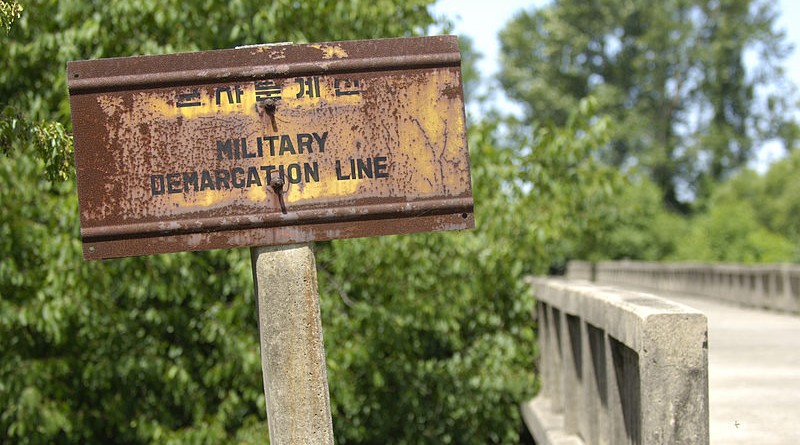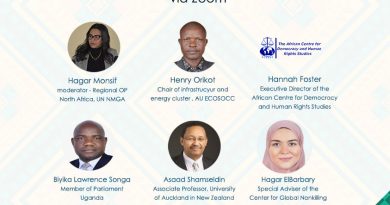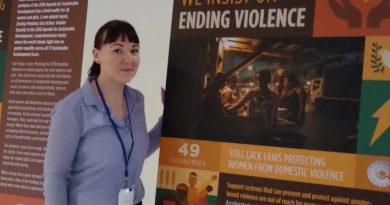CGNK Proposes UN Korean Armistice Peace Settlement Conference
The Center for Global Nonkilling, in its capacity of non-governmental organization in special consultative status with the United Nations Economic and Social Council, submitted a formal written statement to the UN Secretary General addressing the 28th session of the Human Rights Council, that is being held in Geneva between March 2-27, 2015.
CGNK’s written statement “Proposal for UN Korean Armistice Peace Settlement Conference” is derived from the 2010 “Nonkilling Korea: Six Culture Exploratory Seminar” and will be discussed as part of the Annual report of the United Nations High Commissioner for Human Rights and reports of the Office of the High Commissioner and the Secretary-General. The English, French, and Spanish versions of the statement can be downloaded here or from the official UN documentation site under reference number A/HRC/27/NGO/114.
Proposal for UN Korean Armistice Peace Settlement Conference
Seventy years after the arbitrary division of Korea in 1945 and sixty-two years after the July 27, 1953 Korean War Armistice Agreement signed by the Commander-in-Chief of the United Nations Command, the Supreme Commander of the Korean People’s Army and the Commander of the Chinese People’s Volunteers, it is long overdue to conclude the Peace Settlement called for “within three (3) months” in Articles IV (60) and V (62) through “a political conference of a higher level of both sides.” Continuing military and political tensions on the Korean Peninsula require steps to be made following the principles of the UN Charter, which requires members to “settle their international disputes by peaceful means.”
The UN became engaged in the Korean War by President Harry Truman’s decision to seek a Security Council Resolution for collective action to repel North Korean military action to unify Korea (S/RES/82 and S/RES/83). Now all Korean War combatants are members of the UN, including 21 members of the UN Command, the ROK and DPRK admitted in 1991, and China since 1971. Collectively they can act to establish the peace and human rights for which they fought, for the Korean people who have most at stake, for themselves, and for the world community.
Such a Peace Settlement has already been called for in the Report of the commission of inquiry on human rights in the Democratic People’s Republic of Korea (A/HRC/25/63) that explicitly states that “the United Nations and the States that were parties to the Korean War should take steps to convene a high-level political conference. Participants in that conference should consider and, if agreed, ratify a final peaceful settlement of the war that commits all parties to the principles of the Charter of the United Nations, including respect for human rights and fundamental freedoms. States of the region should intensify their cooperation and consider following such examples as the Helsinki Process.”
Absence of the Peace Settlement has contributed to the development of nuclear weapons in North Korea, threats of nuclear counter attack, and periodic bloodshed on land and sea. It has contributed to mutual fear on both sides of the Korean Demilitarized Zone (DMZ), violations of human rights, economic deprivation related to diversion of human and material resources for war-fighting needs, and ecological destruction. Geopolitically it has contributed to insecurity in Northeast Asia involving the two Koreas, China, Japan, Russia, and the United States, and is commonly cited among the world’s most dangerous threats to peace.
Four world leaders can initiate UN action to achieve the Peace Settlement called for in the Armistice. Three of them are Korean. First, UN Nobel Peace Prize Organization Secretary–General Ban Ki-moon under Article 99 of the UN Charter can bring to the attention of the Security Council failure to conclude it as a matter that threatens the maintenance of international peace and security. ROK President Park Geun-hye and DPRK Chairman Kim Jong Un can mobilize support. Nobel Peace Laureate US President Barack Obama can join the call for a UN Korean Peace Settlement Conference.
Among anticipated outcomes of the Conference will be to make Korea a nuclear weapon free zone as called for in 1980 by DPRK Chairman Kim IL Sung at the 6th Congress of the Korean Workers Party. Signs of openness by the DPRK government include proposals such as the one disclosed on January 10, 2015 to “create a peaceful climate on the Korean Peninsula.” Removal of the state of war among all Korean War combatants will open up universal economic and cultural relations favouring Korean evolution toward mutually desired peaceful unification. Korea can and should become a killing-free nation and model for the world.
This proposal is derived from the “Nonkilling Korea: Six Culture Exploratory Seminar” convened by the Center for Global Nonkilling, a non-governmental organization in special consultative status, at Seoul National University during August 18-19, 2010. The results of the Seminar are reported in the book Nonkilling Korea: Six Culture Exploration, edited by Glenn D. Paige and Chung-Si Ahn, co-published by the Seoul National University Press and the Center for Global Nonkilling in 2012. The PDF is available for download at: <http://nonkilling.org/pdf/nkkorea.pdf>. The Center for Global Nonkilling remains fully committed to the development of proposals to catalyze a lasting Peace Settlement on the Korean Peninsula for a killing-free East Asia in a nonkilling world.




